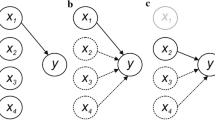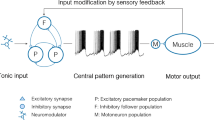Abstract
Neurophysiological research suggests our mental life is related to the cellular processes of particular nerves. In the spirit of Occam’s razor, some authors take these connections as reductions of psychological terms and kinds to molecular- biological mechanisms and patterns. Bickle’s ‘intervene cellularly/molecularly and track behaviourally’ reduction is one example of this. Here the mental is being reduced to the physical in two steps. The first is, through genetically altered mammals, to causally alter activity of particular nerve cells, i.e. neurons, at the molecular level and then, under controlled experimental conditions, to use generally-accepted rules of behaviour within psychology to monitor the results of these manipulations. In this article, we argue that Bickle’s case example for molecular reduction, i.e. the reduction of long-term memory to its cellular-molecular mechanisms, cannot support his claims, because it turns out that his chosen molecular pathway is neither a sufficient nor a necessary condition for the memory consolidation switch, and thus, instead of rejecting the multiple realization argument, Bickle’s argument actually speaks in favour of it. Therefore the idea of reductive connections between our mental life and the activity of particular nerves is, at present, still more fiction than reality.
Similar content being viewed by others
References
Balschun D., Wolfer P.W. et al (2003) Does cAMP response element-binding protein have a pivotal role in hippocampal synaptic plasticity and hippocampus-dependent memory?. The Journal of Neuroscience 23(15): 6304–6314
Bartsch D., Ghirardi M., Skehel P.A., Karl K.A., Herder S.P., Chen M., Bailey C.H., Kandel E.R. (1995) Aplysia CREB2 represses long-term facilitation: Relief of repression converts transient facilitation into long-term functional and structural change. Cell 83: 979–992
Bickle J. (2003) Philosophy and neuroscience: A ruthlessly reductive account. Kluwer Academic Publishing, Dodrecht
Bickle J. (2006) Reducing mind to molecular pathways: Explicating the reductionism implicit in current cellular and molecular neuroscience. Synthese 151: 411–434 doi:10.1007/s11229-006-9015-2
Bourtchuladze R., Frenguelli B., Blendy J., Cioffi D., Schutz G., Silva A.J. (1994) Deficient long-term memory in mice with a targeted mutation of the cAMP-responsive element-binding protein. Cell 79: 59–68 doi:10.1016/0092-8674(94)90400-6
Fodor, J. (1980). Special sciences, or the disunity of science as a working hypothesis. In N. Block (Ed.), Readings in philosophy of psychology (Vol. 1, pp. 120–133). Cambridge: Harvard University Press.
Gass P. et al (1998) Deficits in memory tasks of mice with CREB mutations depend on gene dosage. Learning & Memory (Cold Spring Harbor, NY) 5: 274–288
Kim J. (2001) Mind in a physical world. The MIT Press, Cambridge
Kogan J.H., Frankland P.W., Silva A.J. (2000) Long-term memory underlying hippocampus dependent social recognition in mice. Hippocampus 10: 47–56 doi:10.1002/(SICI)1098-1063(2000)10: 1<47::AID-HIPO5>3.0.CO;2-6
Loorende Jong H. (2006) Explicating pluralism: Where the mind to molecule pathway gets off the track—Reply to Bickle. Synthese 151: 435–443 doi:10.1007/s11229-006-9016-1
Nagel E. (1982) The structure of science. Routledge and Kegan Paul, London
Nelson D.L., Cox M.M. (2000) Lehninger principles of biochemistry. Worth Publishers., New York
Putnam, H. (1980). The nature of mental states. In N. Block (Ed.), Readings in philosophy of psychology (Vol. 1, pp. 223–231). Cambridge: Harvard University Press.
Yin J.C. et al (1994) Induction of a dominant negative CREB transgene specifically blocks long-term memory in Drosophila. Cell 79: 49–58 doi:10.1016/0092-8674(94)90399-9
Zhou, Y., Wu, H. et~al. (2006). Requirement of TORC1 for late-phase long-term potentiation in the hippocampus. PLoS ONE, 1(1), e16, 1–9.
Author information
Authors and Affiliations
Corresponding author
Rights and permissions
About this article
Cite this article
Bregant, J., Stožer, A. & Cerkvenik, M. Molecular reduction: reality or fiction?. Synthese 172, 437–450 (2010). https://doi.org/10.1007/s11229-008-9401-z
Received:
Accepted:
Published:
Issue Date:
DOI: https://doi.org/10.1007/s11229-008-9401-z




